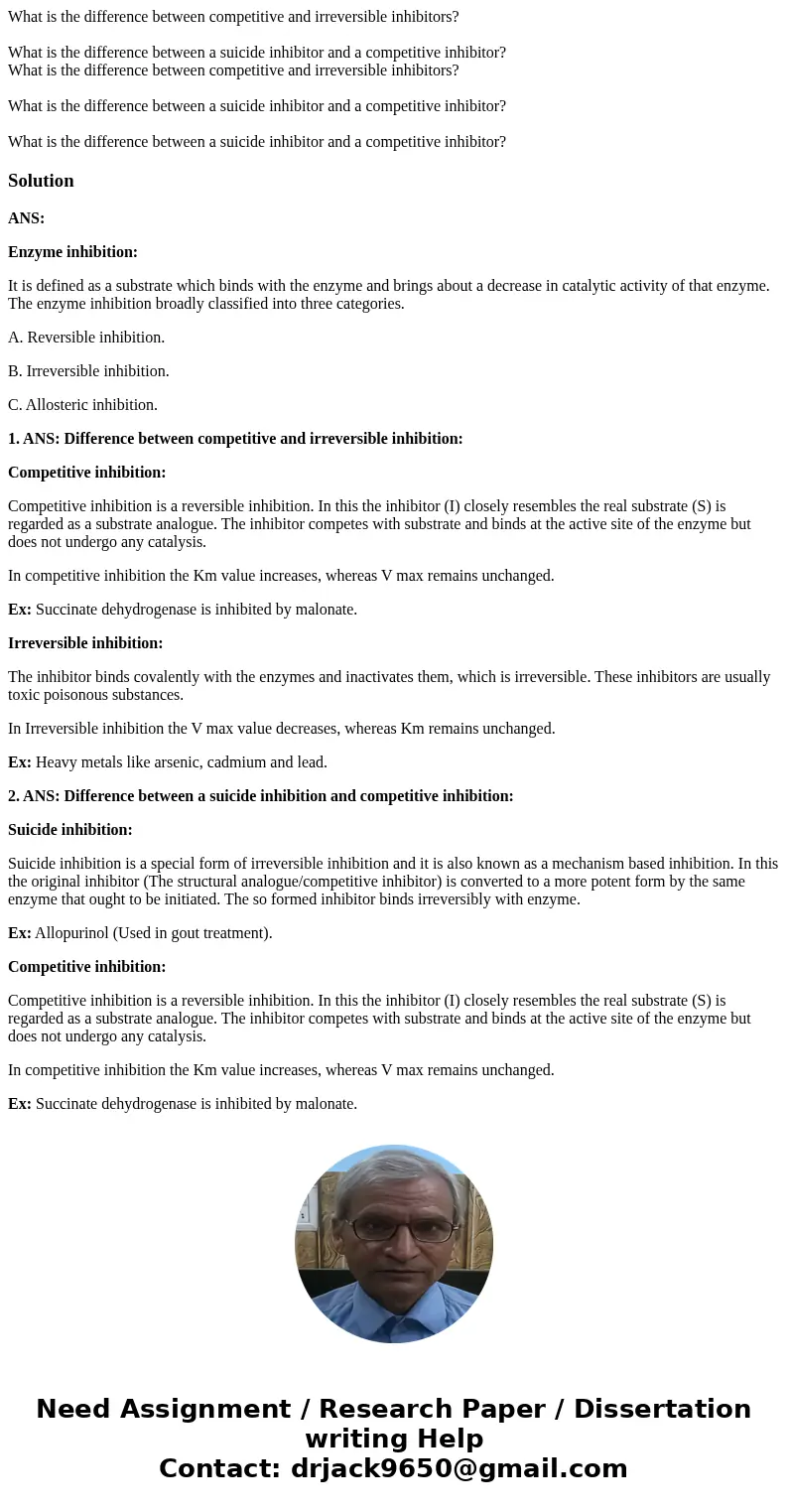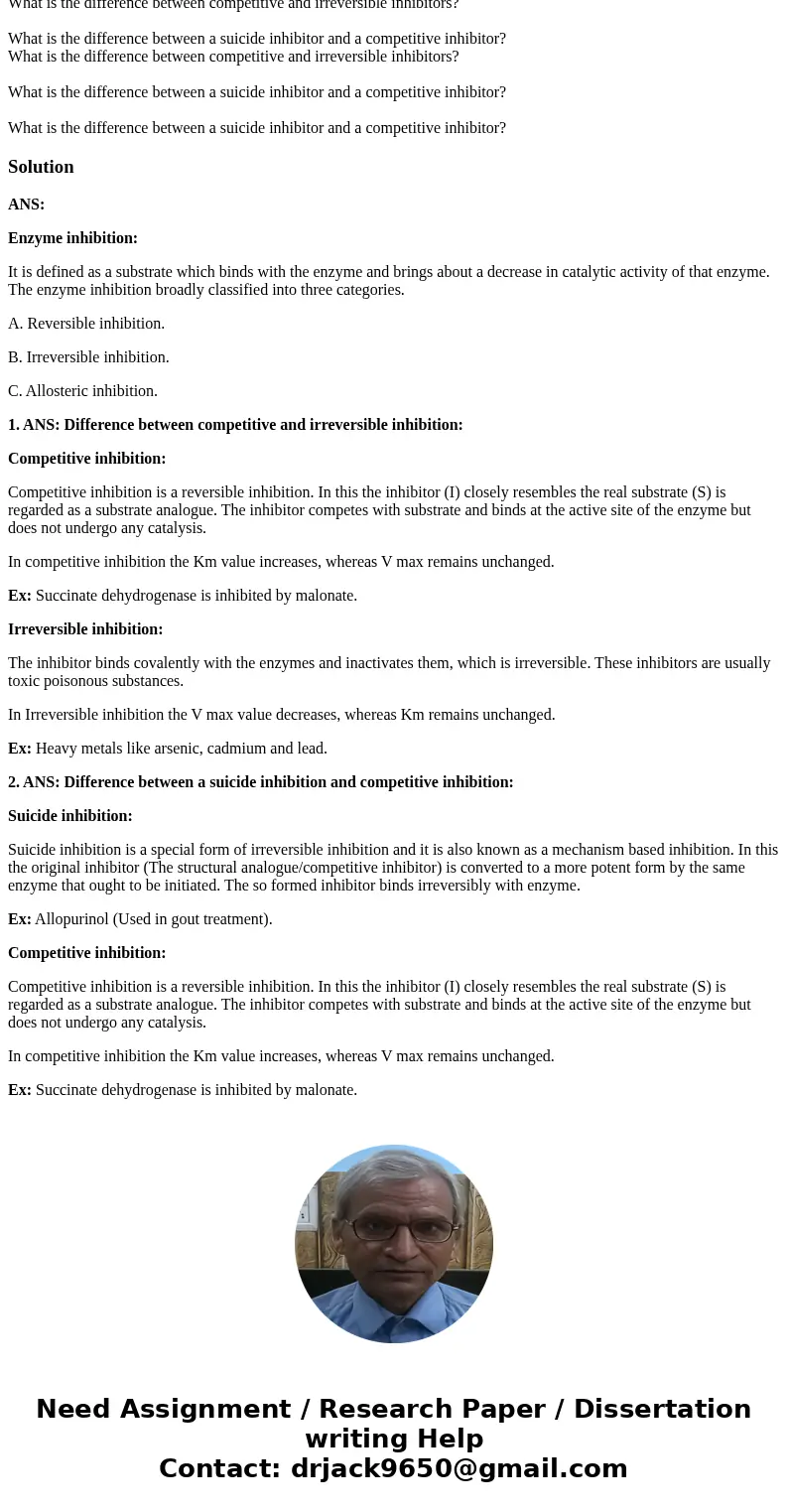What is the difference between competitive and irreversible
Solution
ANS:
Enzyme inhibition:
It is defined as a substrate which binds with the enzyme and brings about a decrease in catalytic activity of that enzyme. The enzyme inhibition broadly classified into three categories.
A. Reversible inhibition.
B. Irreversible inhibition.
C. Allosteric inhibition.
1. ANS: Difference between competitive and irreversible inhibition:
Competitive inhibition:
Competitive inhibition is a reversible inhibition. In this the inhibitor (I) closely resembles the real substrate (S) is regarded as a substrate analogue. The inhibitor competes with substrate and binds at the active site of the enzyme but does not undergo any catalysis.
In competitive inhibition the Km value increases, whereas V max remains unchanged.
Ex: Succinate dehydrogenase is inhibited by malonate.
Irreversible inhibition:
The inhibitor binds covalently with the enzymes and inactivates them, which is irreversible. These inhibitors are usually toxic poisonous substances.
In Irreversible inhibition the V max value decreases, whereas Km remains unchanged.
Ex: Heavy metals like arsenic, cadmium and lead.
2. ANS: Difference between a suicide inhibition and competitive inhibition:
Suicide inhibition:
Suicide inhibition is a special form of irreversible inhibition and it is also known as a mechanism based inhibition. In this the original inhibitor (The structural analogue/competitive inhibitor) is converted to a more potent form by the same enzyme that ought to be initiated. The so formed inhibitor binds irreversibly with enzyme.
Ex: Allopurinol (Used in gout treatment).
Competitive inhibition:
Competitive inhibition is a reversible inhibition. In this the inhibitor (I) closely resembles the real substrate (S) is regarded as a substrate analogue. The inhibitor competes with substrate and binds at the active site of the enzyme but does not undergo any catalysis.
In competitive inhibition the Km value increases, whereas V max remains unchanged.
Ex: Succinate dehydrogenase is inhibited by malonate.


 Homework Sourse
Homework Sourse